best vpn service
The best VPN services protect your digital privacy & offer a strong online shield. We’ve identified the best 7 VPN with solid performance and security features – all without breaking the bank!
The best VPN services secure your internet access and activity, protecting your data from hackers and prying eyes. We have tested and ranked 7 VPN providers based on their security features, connection speed, cost and track record, so you can choose the right one.
This article explains how we test VPN services. We also cover what a VPN is, why you need one, and what it does for you. We also discuss the limitations of VPNs and why they’re better than TOR or proxy services. We explore how VPNs protect against cyberthreats and secure website management activities. We recommend ExpressVPN as the #1 VPN provider overall.
Top VPN Providers
- ExpressVPN – Best premium VPN
- Surfshark – Best cheap VPN
- NordVPN – Best VPN for speed & privacy
- CyberGhost – VPN with most servers
- PrivadoVPN – Best lightweight VPN
- IPVanish – Best VPN for multi-device support
- ProtonVPN – Best Swiss-based VPN
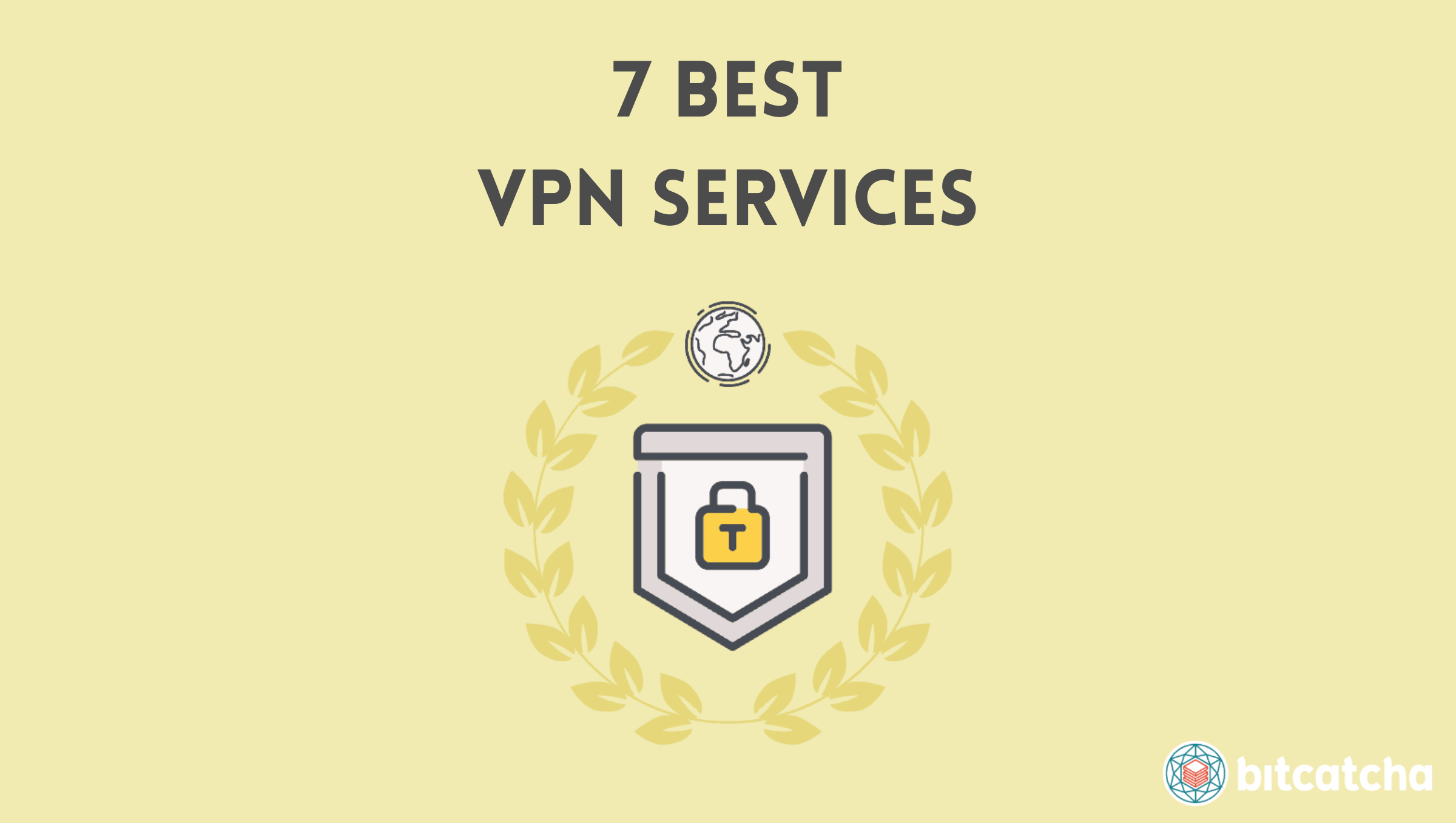
Note
Price shown is lowest based on plans available from each VPN service provider.

1. ExpressVPN
https://www.expressvpn.com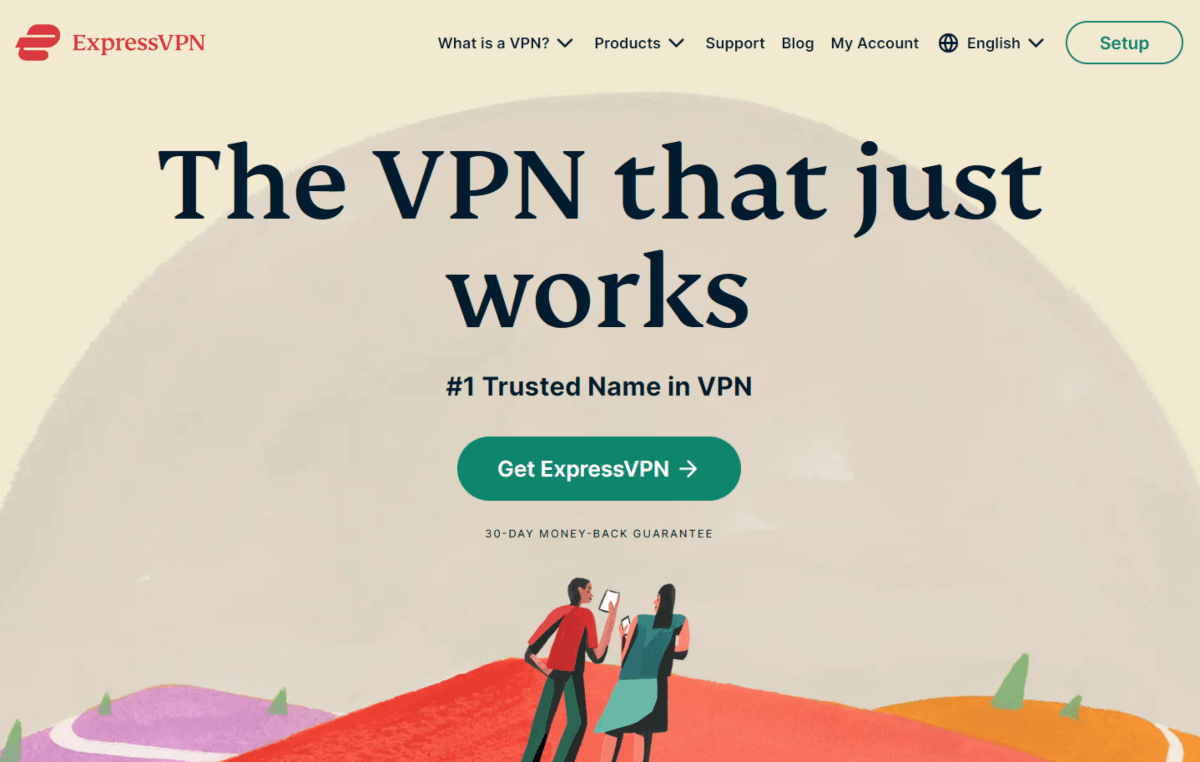
ExpressVPN is one of those services that is simply reliable. By labelling it as one of my top choices, I’m not saying it is perfect or performs the best in all areas, but rather that it is stable and a very strong offering with a solid reputation.
What I really like about ExpressVPN includes:
- Anonymity and security From being based in the British Virgin Islands to offering a strong mix of connection protocols and military-grade data encryptions, ExpressVPN is a defining name in security and anonymity. It not only does not log but has stated that it has processes in place to eliminate sensitive information if found. Talk about dedication.
- High availability Although not having the highest number of servers available, I find ExpressVPN to have the best spread of usable servers. It covers all key areas of the globe and has a good mix of protocols and encryption accepted at various servers.
- Sleek interface Supported on many devices and platforms, I found that the user interface across them is simple and easily usable. Looks great too!
- Fast speeds Speed tests are a critical point and all my tests have been re-run and double checked many times by others as well as myself. There is the standard 5% to 10% degradation of service, but I find that ExpressVPN servers are mainly able to keep up with whatever you throw at them. They are fast, and seriously so.
If there is a downside to ExpressVPN I have to say it is in pricing. Even for a one-year sign-up period, the cost is always an edge ahead of the others. If you’re serious about a VPN though, you can’t really quibble over nickels, can you? See our ExpressVPN review to learn why it’s our #1 top VPN!

2. Surfshark
https://surfshark.com/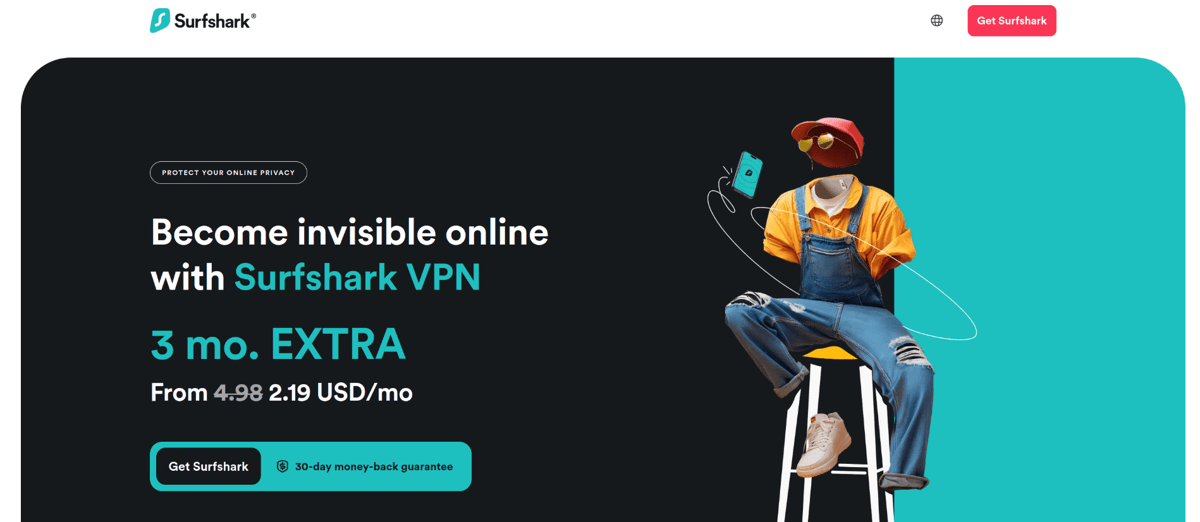
Surfshark may be quite new – it was only introduced in late 2018 – but it certainly is a service provider to keep a close eye on. Maintaining an excellent entry price point of only $2.30 per month for their two-year plan, it poses a serious challenge to industry veterans.
Some of its highlights include:
- Shadowsocks protocol Where many VPN providers are beginning to give up on the China market, Surfshark still maintains hope here with their inclusion of the Shadowsocks protocol. This is supposedly able to get you over the Great Firewall of China and may be the last bastion of privacy on the mainland.
- Consistent speeds Surfshark has a decent network of over 1,700 servers spread across 60-odd countries. Among top-tier VPN providers, that isn’t overly much. However, it makes up for this by offering solid performance all-round.
- Multiple payment types accepted While you can pay via most traditional forms such as credit cards, Surfshark introduces new concept payments such as Google Pay, Amazon Pay and Alipay. For the more paranoid you can also opt for cryptocurrency as well.
- Unlimited connections This is the first high-performing service which I’ve come across to be so generous. Most VPN will restrict you to a certain number of connections. That goes out the door with Surfshark, so run as many as you want at the same time.
In the field of security, reputation means a lot since you need to be able to trust the provider who you are hoping will keep you safe. Being relatively new in the market, Surfshark simply hasn’t the street cred yet to buy it an automatic pass into trust. Find out more at our complete Surfshark review!

3. NordVPN
https://nordvpn.com/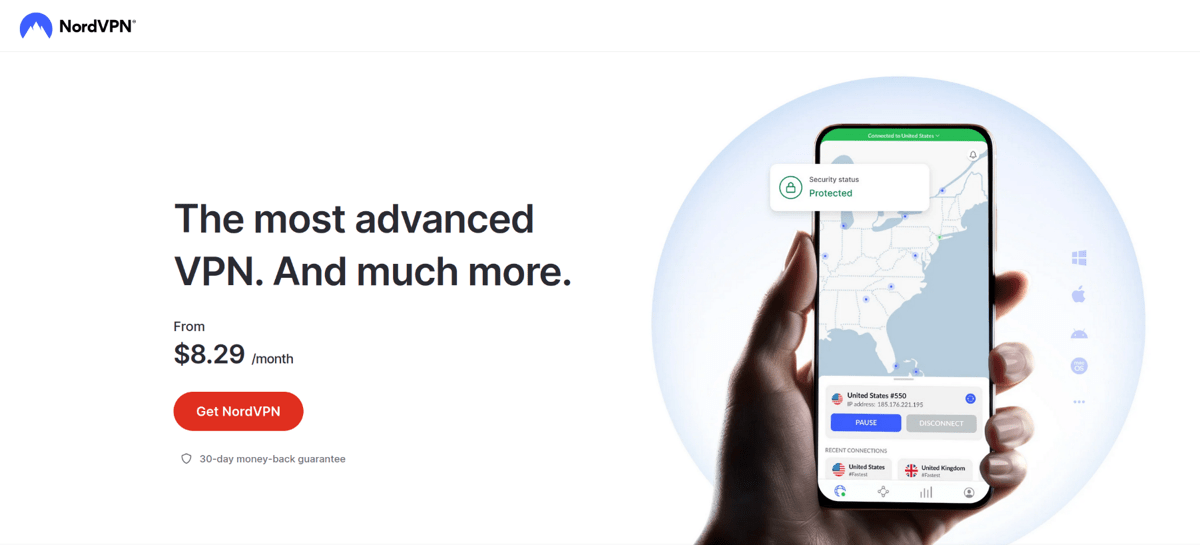
To me, NordVPN was a little bit of a difficult decision. On my first go-around, I felt that everything was going a little too smoothly. It was fast, easy to use – basically like a well-oiled machine.
Then I realized that was because everything I was seeing was basically an idiot-proof setup. Just click and go, that’s all. For the pros, tweakable features still exist, so don’t worry about that.
Some of the highlights of NordVPN include:
- PGP keys increase customer communication security Aside from multiple protocols and 256-bit encryptions, NordVPN even uses PGP keys to secure communications with their customers. To my knowledge, PGP (Pretty Good Privacy) is pretty much unbreakable, so that’s an added privacy bonus. Oh, and you can pay anonymously with Cryptocurrency as well.
- Double VPN Instead of just bouncing off one VPN server, NordVPN can route you through two! How’s that for paranoia? For a VPN service, this is an advantage, but personally (and this is just me I mean) I think it’s a bit excessive.
- Massive number of servers With well over 5,000 servers deployed, wherever you are, NordVPN has you covered. Literally.
- 3-year plan at only $3.49/mo That’s one of the lowest prices I’ve seen a reputable commercial VPN go for and that’s the truth. You might find a cheaper service but not at these levels of performance. Unfortunately, this price is only available if you sign up with NordVPN for 3 years, which might be a bit of a long stretch for some.
With such a huge spread of servers, a few hiccups isn’t surprising. What makes it annoying is that slower servers can be remarkably so. For example, their Malaysia server is local for me and it’s practically unusable. Read our full NordVPN review to learn why we love it!

4. CyberGhost
https://www.cyberghostvpn.com/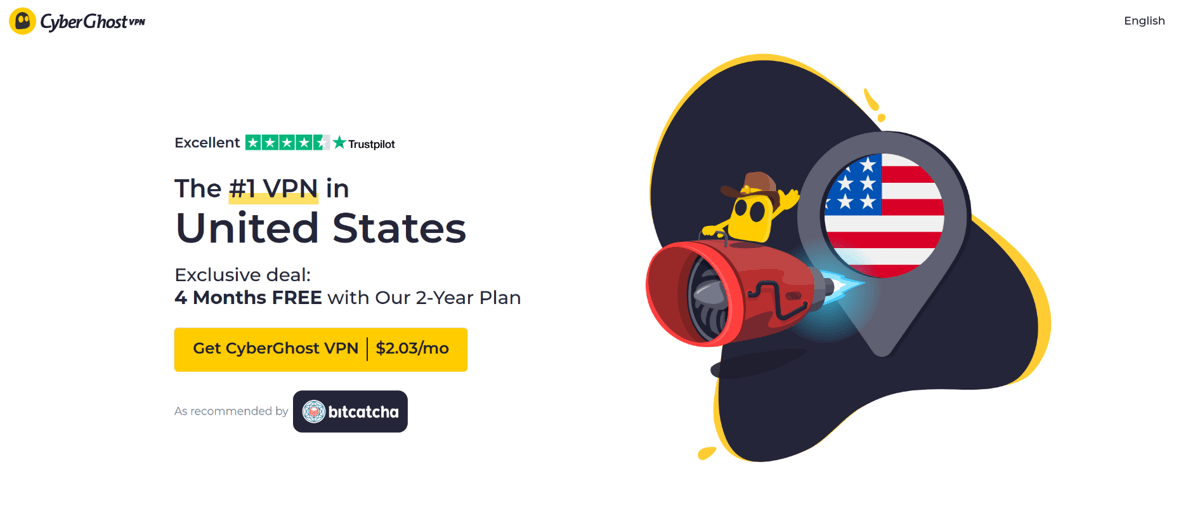
CyberGhost offers a service that is pretty solid all-round. This ranges from their technical specifications to the very attractive price it goes for. To top it all off, performance has also increased remarkably over the years.
Some highlights include:
- Massive server presence Joining the CyberGhost family will give you access to an unprecedented number of servers around the world. Simply put – their network is really massive. With a presence in more than 89 countries, you’ll be hard pressed to find a place you can’t connect to.
- Strong security Even for a VPN service, there are many options when it comes to CyberGhost security. This goes way past encryption and all. A big part of the deal is that they’re a cybersecurity company at heart, and that shows strongly in their VPN product.
- Good for streaming fans With so many servers, you might think that the CyberGhost is chasing numbers alone. I assure you that isn’t the case and this can be seen by the specialized server tuning they have in place – for example, P2P or media streaming servers.
- NoSpy servers CyberGhost has a special set of NoSpy servers which it maintains under strict control. Only they access the hardware and software on these, and they guard them zealously. NoSpy servers support P2P activities as well.
Similar to NordVPN, having such a massive server pool can be a bit of a double-edged sword. It takes a huge amount of dedication to upkeep this equipment to the maximum, so at times you may find some slower connections on CyberGhost. Hop over to our CyberGhost review to learn more!
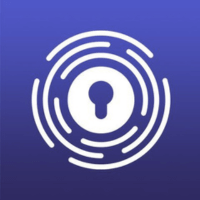
5. PrivadoVPN
https://privadovpn.com/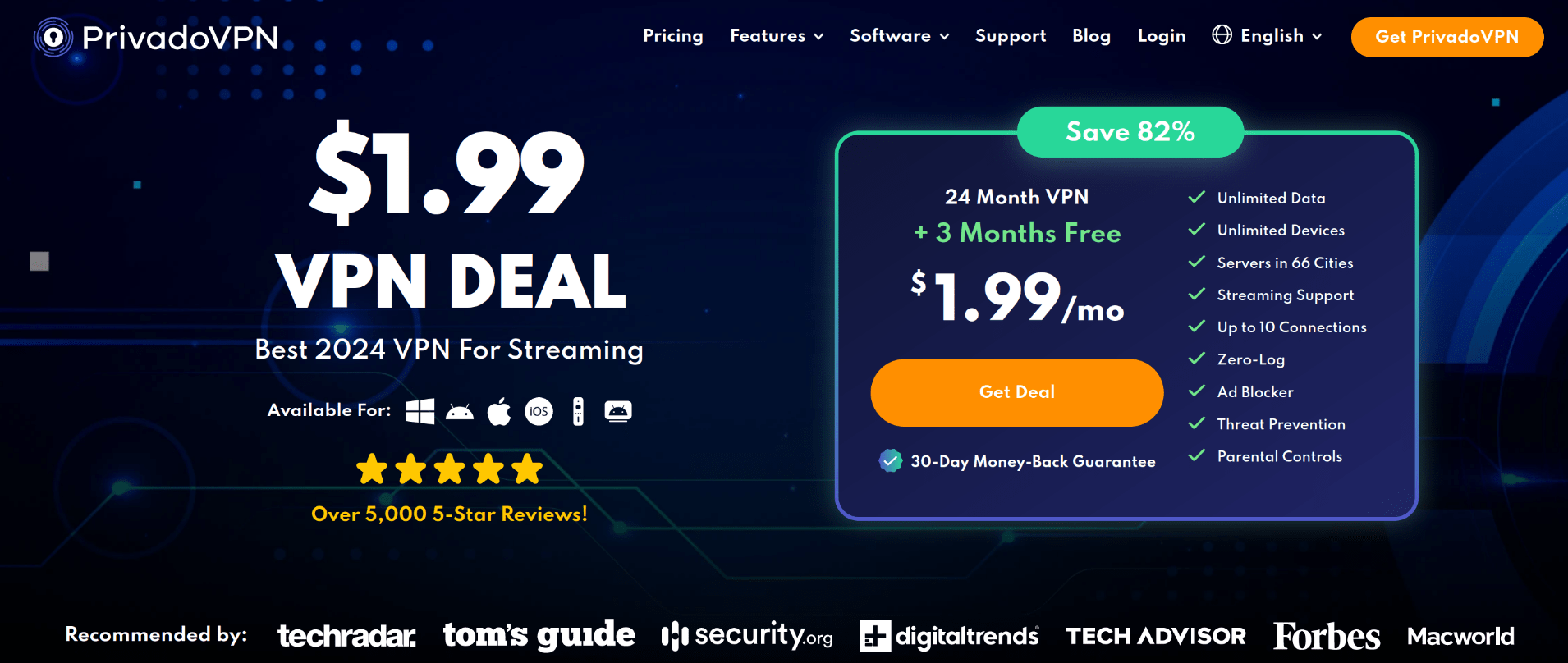
For a relatively new player in the VPN space, PrivadoVPN offers what seems to be excellent performance. While the network is presently slightly underpowered, excellent services like this tend to snowball.
If you’re seeking a good alternative to mainstream VPN brands, give PrivadoVPN a try. It currently sits at the starting line, waiting for customers to join it in a sprint towards stardom. It already boasts several impressive features, including;
- Support for 10 simultaneous connections It’s not advisable to run a VPN on your router since these devices are often underpowered. PrivadoVPN understands this, so it offers generous support for up to 10 simultaneous connections. There’s no need to choose what devices to connect – just run PrivadoVPN on all of them.
- Lightweight application Unlike many service providers, Privado does its best to limit the impact of its app on your device. They’re so lightweight that you won’t even notice the resource consumption while it’s running in the background. Running PrivadoVPN even on a Chromebook won’t be a problem.
- Test PrivadoVPN for free PrivadoVPN offers a free plan that provides users with 10GB of bandwidth each month. While that isn’t much, you can easily use it as an extended free trial of their excellent service. Why worry about money-back guarantees if it starts free instead?
- SOCKS5 proxy available Privado VPN offers an option for users to use a SOCKS5 proxy, which can be helpful when downloading files. This proxy service transfers smaller packets each time, making them a fantastic choice for P2P.
Nothing irks me more about any service than customer support that doesn’t do its job well. Sadly, PrivadoVPN falls into this category, with support agents not reading customer input and giving “template” responses. Read our PrivadoVPN review for more information!

6. IPVanish
https://www.ipvanish.com/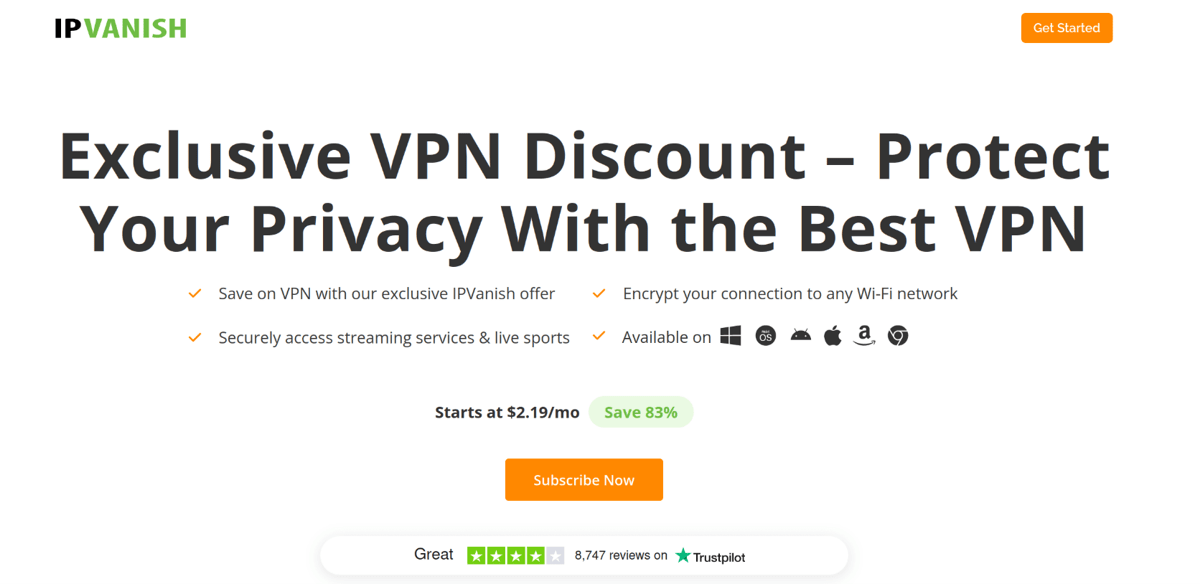
The IPVanish of today is a bit different from what it was in the past. A longstanding name in the business, it once had its reputation tarnished. According to the Torrentfreak report entitled “IPVanish No-Logging VPN Led Homeland Security to Comcast User” in 2018, the IP address was revealed to Homeland Security. We can’t say it wasn’t their own fault. However, since then it has come under new management – which has kept its nose clean for the time being.
Great things about IPVanish include:
- Solid availability While it may not have the largest server farm in the world, IPVanish still offers over 1,500 of them in over 60 countries. Most are located in Europe and America which is its key user base. Sadly, its Asia presence leaves a bit to be desired.
- Owned infrastructure increases safety One important thing to note about IPVanish is that they actually own their own network. Unlike many VPN services that lease servers, IPVanish buys and deploys their own. This raises security blessings by a fair bit.
- Multi-platform available Most of us today use a ton of different devices. Understanding that, IPVanish tried to accommodate as many of them as sanely possible. This includes everything from the common to more archaically today – the Windows phone. Oh yes, and routers too, if that’s your wish.
- No logging policy While this may be common for VPN services, with IPVanish it’s a matter of pride now. Knowing their sullied past, the new IPVanish is determined not to let that happen again. As such it has a clearly outlined no-logging policy for its users.
Having fallen so badly in the past is bad enough, but IPVanish committed the cardinal sin for a privacy service. This really is a bit difficult to look past, and paying them to show your fault can be a bit hard to swallow. Learn more at our detailed IPVanish review!

7. ProtonVPN
https://protonvpn.com/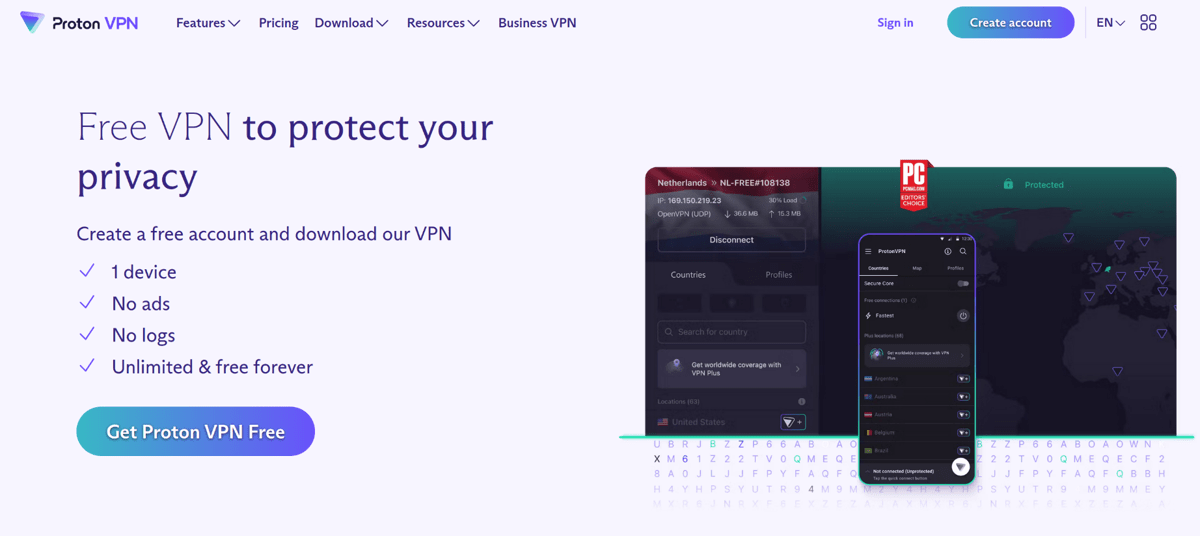
ProtonVPN is a bit of an outsider. It’s been around for ages and seems like a pretty decent service, but has still struggled. Part of that lies in its previously poor marketing, but the ProtonVPN of today seems to be emerging like a Phoenix from the ashes. In fact, it has a number of other outstanding services as well.
For their VPN service we enjoy:
- The wonders of Switzerland Sweet Switzerland is where personal privacy is virtually guaranteed. That means no snoopy government interference. Combine that with strong encryption and protocols and support for even TOR browser – it’s a perfect win scenario.
- No leaks and logs While many VPN providers offer this policy, ProtonVPN has gone the whole hog and established a Transparency Report. This lets everyone know what requests for information it has received and what it has done in response to those. I only wish they were more crude about their responses.
- Extra-special servers Instead of random multi-route services, ProtonVPN has established a hardened core of three ultra-secure server locations. The triangle of Switzerland, Iceland, and Sweden is where they house their special servers – including burying them underground in fortified bunkers.
- Decent speeds Speeds offered by ProtonVPN do generally offer a bit of a mixed experience. However, I have noted that in some areas they do show very impressive results and the basic feeling is that they’re able to somehow balance their load following popular demand. A very cost effective deployment I would say.
This is a little unfortunate, given how well it does overall. Sadly, I did note that certain websites are especially sensitive to their technology and tend to block access. To their credit, they do try to resolve this, but it takes really long. Find out more at our in-depth ProtonVPN review!
How do we test VPN services?
To give you an idea of the overall testing, we mainly look along five key areas. These include speed, availability, anonymity & security, customer service, as well as user experience.
The entire testing process looks at:
- Speed Without fail, using a VPN will typically result in a reduction of actual speed. Exactly how much may vary, depending on the server you connect to, line congestion, and other things added to the mix.
- Availability The more countries a VPN is in and the greater number of servers it has the better, believe me. Some will be in countries that have terrible speeds, some will be overloaded, so with more, you’ll have more options.
- Anonymity & security As a rule of thumb, both encryption and communication protocols chosen will affect performance. However, these are the elements that influence the security side of VPNs. There are also logging policies, evidence of leaks, detection prevention and other small line items to consider.
- Customer service Even if a VPN service offers the best performance in the world, how they attend to their customers is important. As relatively technical tools, it must be expected that some users will encounter problems. How quickly those are attended to and effectively resolved count.
- User experience At the end of the day, if a service hits all the right spots and checks all the right boxes, you may just feel uncomfortable with it for some unknown reason. I find that these feelings are usually accurate, or at the very least, worth saying no to a service over.
Important note
In order to get a realistic framework for all our performance tests, they always include a baseline speed as well. This serves as a benchmark for each VPN service, to see how much speed it can produce based on actual data.
What is a VPN?
Virtual Private Network are private networks of servers. They help users increase digital privacy while adding additional layers of security at the same time. They can be used by both businesses and individual consumers.
In a business context, VPNs are often established by companies or specialized service providers to enable secure access to confidential information for remote employees. From an individual consumer or small business perspective, VPNs are more easily accessible and affordable.
The primary goals remain privacy and security, achieved by routing data through secure VPN servers and masking the user’s origin and device details. Additionally, VPNs encrypt data to prevent unauthorized access or theft during transmission. See our in-depth VPN writeup to learn more.
Why use a VPN?
Today, there are literally a million and one reasons to use a VPN to increase your online security and privacy. The digital world is expanding greatly, and accompanying its rise are threats as well.
Cyberspace is littered with hackers flooding it with attempts to steal data, compromise systems, or otherwise wreak havoc – not just on businesses, but aimed at us, individual consumers as well.
To make things worse, legitimate companies online are doing their best to extract this information from us as well. On the surface, it’s to provide us with a better user experience. In reality, it helps them target us for advertising and sales.
Because of this, we need to take out digital privacy more seriously and into our own hands. The best way of doing that is by starting with a VPN. From blocking snoops to safeguarding our points of origin, VPNs can help us in so many ways.
What can I use a VPN for ?
By their very nature, VPNs are intended to help mask your identity and secure your data. However, they also come along with many other redeeming capabilities. Let’s consider how they can be used:
- Stream geo-blocked content
- Bypass ISP censorship
- Avoid tracking
- Torrent safely
- Establish safer connections to internal networks
What are the limitations of VPN services?
While VPNs are awesome, there do remain some limitations that you need to pay attention to. They aren’t blank cheques that will allow you to do anything you want online without heed. For instance, they:
- Doesn’t give access to hidden Dark Web sites VPNs only protect your access to the net. To get to Dark Web sites, you’ll still need special tools such as the Tor Browser, a search engine like DuckDuckGo and other stuff as well.
- Doesn’t prevent phishing attacks Since phishing attacks mostly prey on people, the technology behind it can be difficult to guard against. Using a VPN isn’t a substitute for common sense, so don’t leave yours at the door when using one.
- May get blocked by some sites Some websites are especially sensitive to VPN usage. This is especially true for web apps or sites that belong to financial institutions. You may find yourself denied access to these sites if they detect you’re on a VPN connection.
Why use VPN over TOR or Proxy?
While aiming to achieve many similar things, VPN, Tor, and Proxies are not really the same thing. You might be able to get away with using either for some purposes, but the technology is fundamentally different.
The Onion Router, or TOR, is more of an anonymizer that works by routing packets of data though a massively conflagrated network of hubs and nodes. It does this in the hope of making things as difficult as possible to trace the origins of the data. It’s free to use, but the way it’s built makes it very slow to use. At the same time it does not offer the same level of protection to either the source or the data itself that a VPN service does.
Proxies only serve to route your connection through a third party server. It doesn’t mean your data is safe, especially since the provider of the proxy server itself can be shady at the best of times. It is possible to combine these services with a VPNs service to improve your overall security profile. Honestly though, in most cases, simply using a VPN is sufficient.
Why is VPN essential for preventing phishing and spoofing attacks?
VPN is essential for preventing phishing and spoofing attacks because a VPN encrypts your internet traffic and hides your real IP address. Phishing are deceptive attempts by cybercriminals to steal sensitive information by pretending to be legitimate entities through emails and websites. Spoofing is a cyberattack where a malicious actor disguises their identity by impersonating a trusted source to make their fraudulent actions. By traffic encryption and IP address masking, attackers cannot track your activities and hence reduce the risk of phishing and spoofing.
What role does a VPN play in website management?
A VPN plays a crucial role in website management by encrypting your connection to hosting panels, preventing unauthorized access to sensitive data such as login credentials and website settings. It protects administrators from cyber threats like man-in-the-middle attacks when working remotely or on public networks. VPNs also hide your IP address, adding anonymity, which helps prevent targeted attacks on your website. In short, a VPN secures both the management process and the website itself from vulnerabilities.
Can VPNs prevent data breaches and ransomware attacks on websites?
No, VPNs cannot prevent data breaches or ransomware attacks on websites directly. A data breach occurs when unauthorized individuals access a server to steal sensitive data, while ransomware locks systems and demands payment for access. VPNs secure the connection by encrypting data in transit but do not protect servers from vulnerabilities or malware. Safeguarding a website requires firewalls, malware protection, regular updates, and a VPN for secure access.
Can VPN services help prevent unauthorized access when managing a website?
Yes, VPN services prevent unauthorized access when managing a website by encrypting your connection and masking your IP address. This protects sensitive data like login credentials and website configurations from interception, especially on unsecured networks such as public Wi-Fi. With this added layer of security, a VPN makes it much harder for attackers to access your website management systems.
Why is it essential to use a VPN when accessing web hosting accounts?
Using a VPN when accessing web hosting accounts is essential to safeguard login credentials. VPNs encrypt your connection, ensuring sensitive information like usernames and passwords remain protected from interception, especially on unsecured networks. This prevents unauthorized access to your web hosting accounts.
A VPN also hides your online activities and physical location. By masking your IP address, it prevents tracking by attackers and keeps your true location concealed. This enhances overall security when securing your website.
Additionally, using a VPN can provide faster internet speed by bypassing local ISP throttling. It ensures smoother access to hosting accounts. VPN also keeps sensitive data secured during transfers between servers.
How does VPN encryption protect sensitive data on web hosting accounts?
VPN encryption converts data into a coded format readable only by authorized parties. It secures your data before transmission using methods like AES (Advanced Encryption Standard) with 256-bit encryption, which scrambles data into an unreadable format. The “256-bit” refers to the key size, making it extremely difficult for hackers to crack.
When accessing a web hosting account, VPN encryption secures sensitive data like credit card details, health records, and login credentials as it moves between your device and the hosting server. Even if intercepted, the encrypted data remains indecipherable without the decryption key.
VPN vs SSL: what’s the best solution for securing your website?
SSL is a digital certificate that secures connections between a web server and a user’s browser by encrypting data. Also known as TLS, it enables HTTPS, protecting sensitive information and boosting user trust.
VPN and SSL serve different purposes in website security. A VPN secures overall internet connections, ideal for website administrators to protect their management sessions. SSL encrypts data between a website and its users’ browser, ensuring that users’ interactions with the site are secure.
For securing a website, SSL is essential for protecting the end user, while a VPN enhances admin access security. Both are important for complete website security.
Who is the best web host company to be used alongside a VPN?
The best web host company to be used alongside a VPN prioritizes security features like strong encryption, SSL certificates, and secure server configurations. The best web host company offers robust security measures such as DDoS protection, automated backups, and a secure control panel. Hostinger is our top recommendation.
Verdict: Which is the best VPN?
To recap, here is our top 7 VPN services for 2025:
| VPN | ExpressVPN | Surfshark | NordVPN | CyberGhost | PrivadoVPN | IPVanish | ProtonVPN |
|---|---|---|---|---|---|---|---|
| Connection speed | Excellent | Very Good | Excellent | Excellent | Excellent | Very Good | Excellent |
| Overall rating | 5/5 | 5/5 | 5/5 | 4/5 | 4/5 | 4/5 | 4/5 |
| Price (USD /mo) | $6.67 | $2.21 | $4.99 | $4.29 | $4.99 | $3.33 | $7.40 |
| See all features |
As you can see by now, there are so many situations where VPNs can play a part in our online safety. In fact, thanks to their nature, we can use them for many other things as well. Yet when choosing a VPN, we don’t necessarily have to find one which can do everything.
Each VPN provider is bound to have an edge in one area or another. The ones which have made it onto our Best VPN list, all have some strong points to recommend. Make your choice following your needs, with this list as a guideline.
Take charge of your online privacy and security now, before it’s too late.
